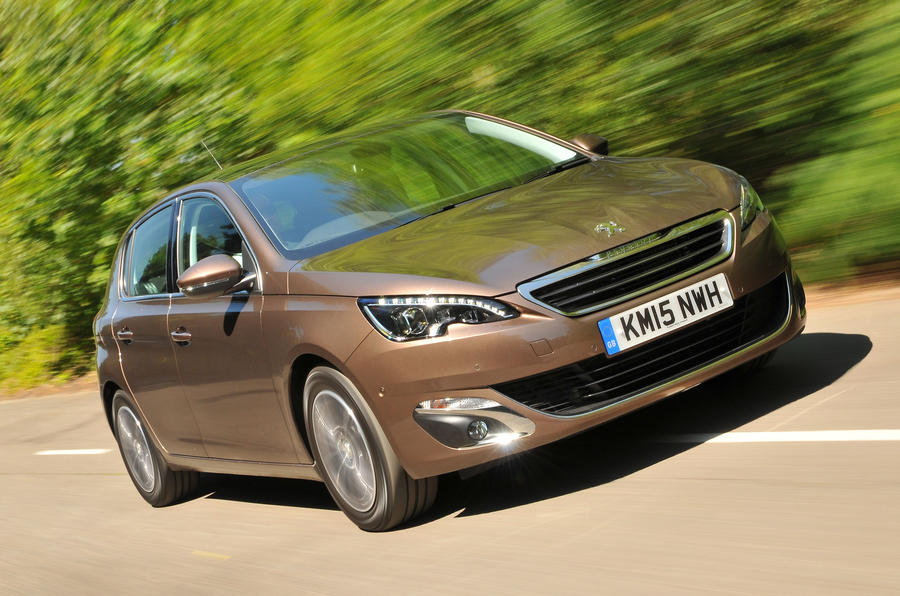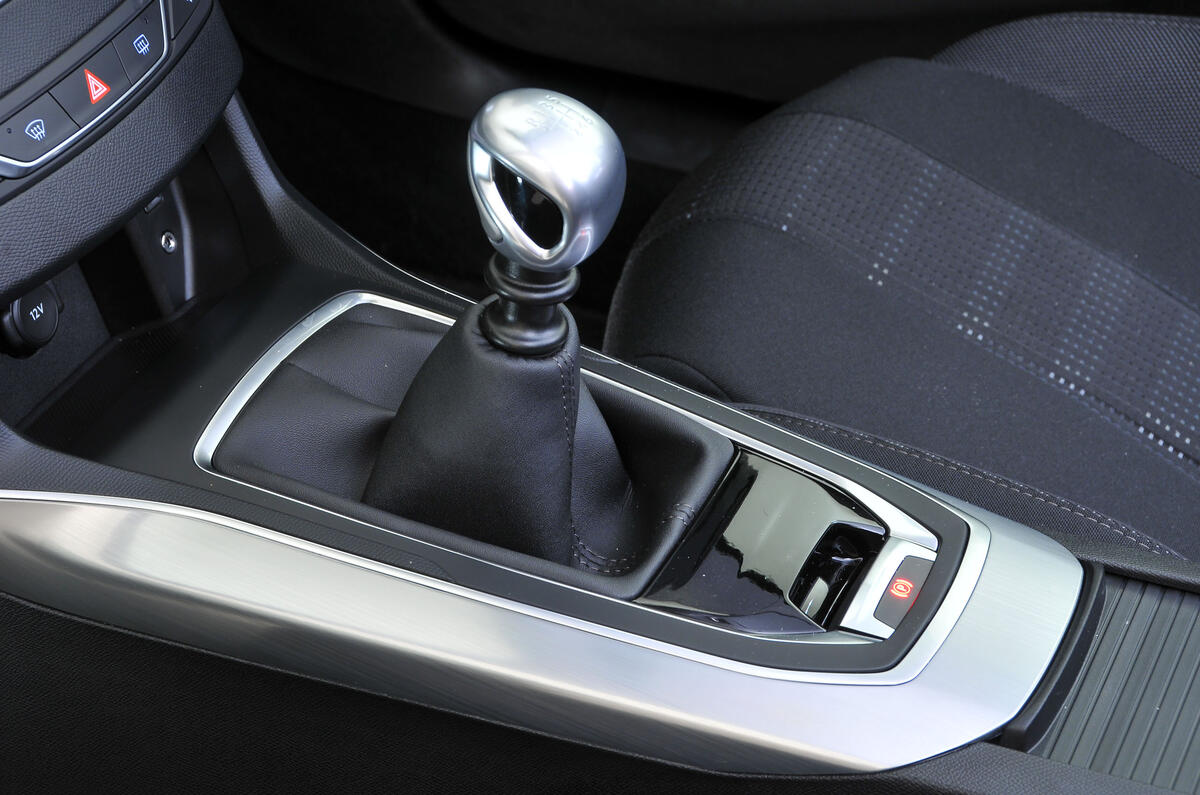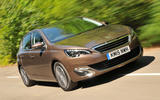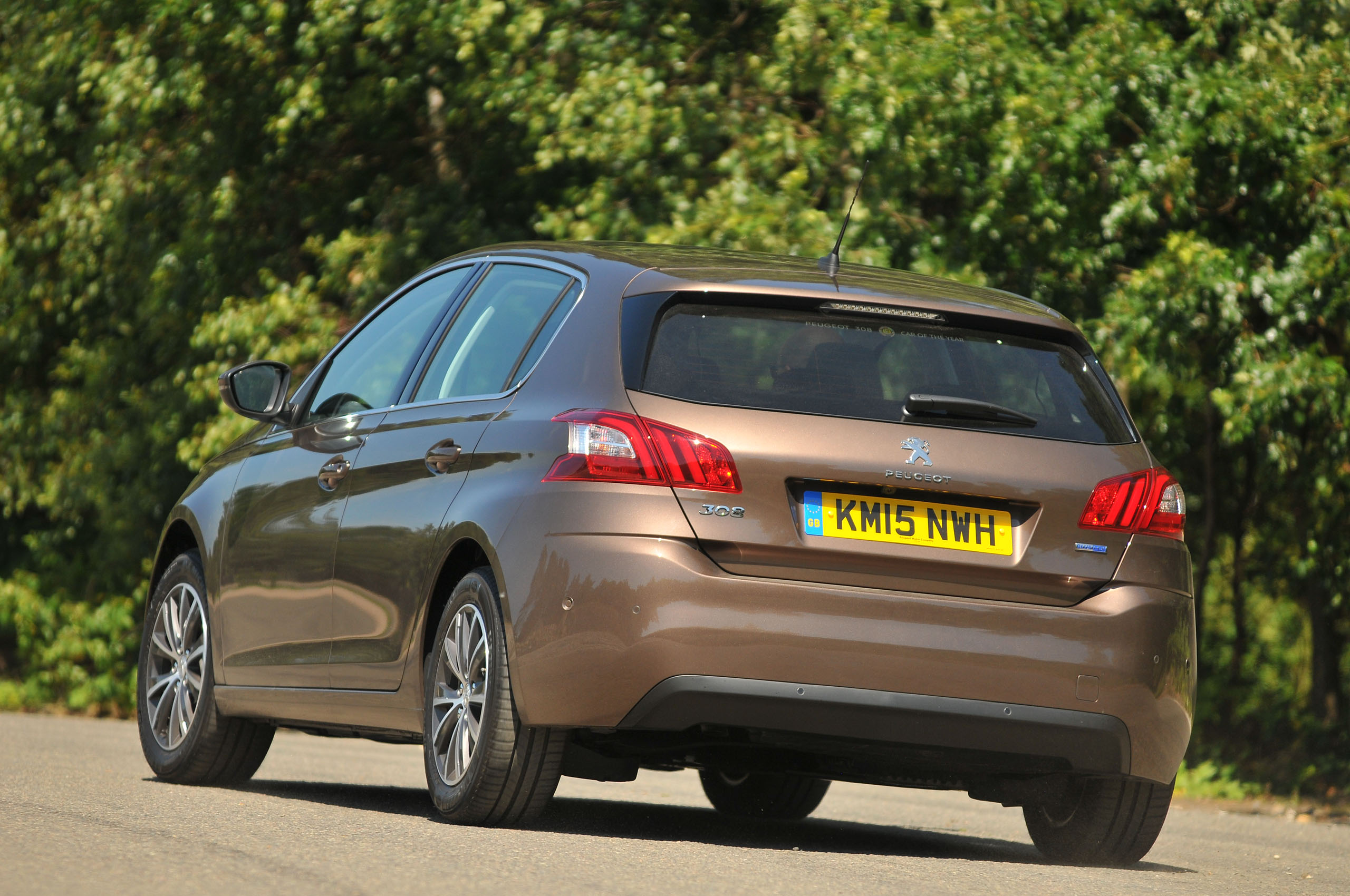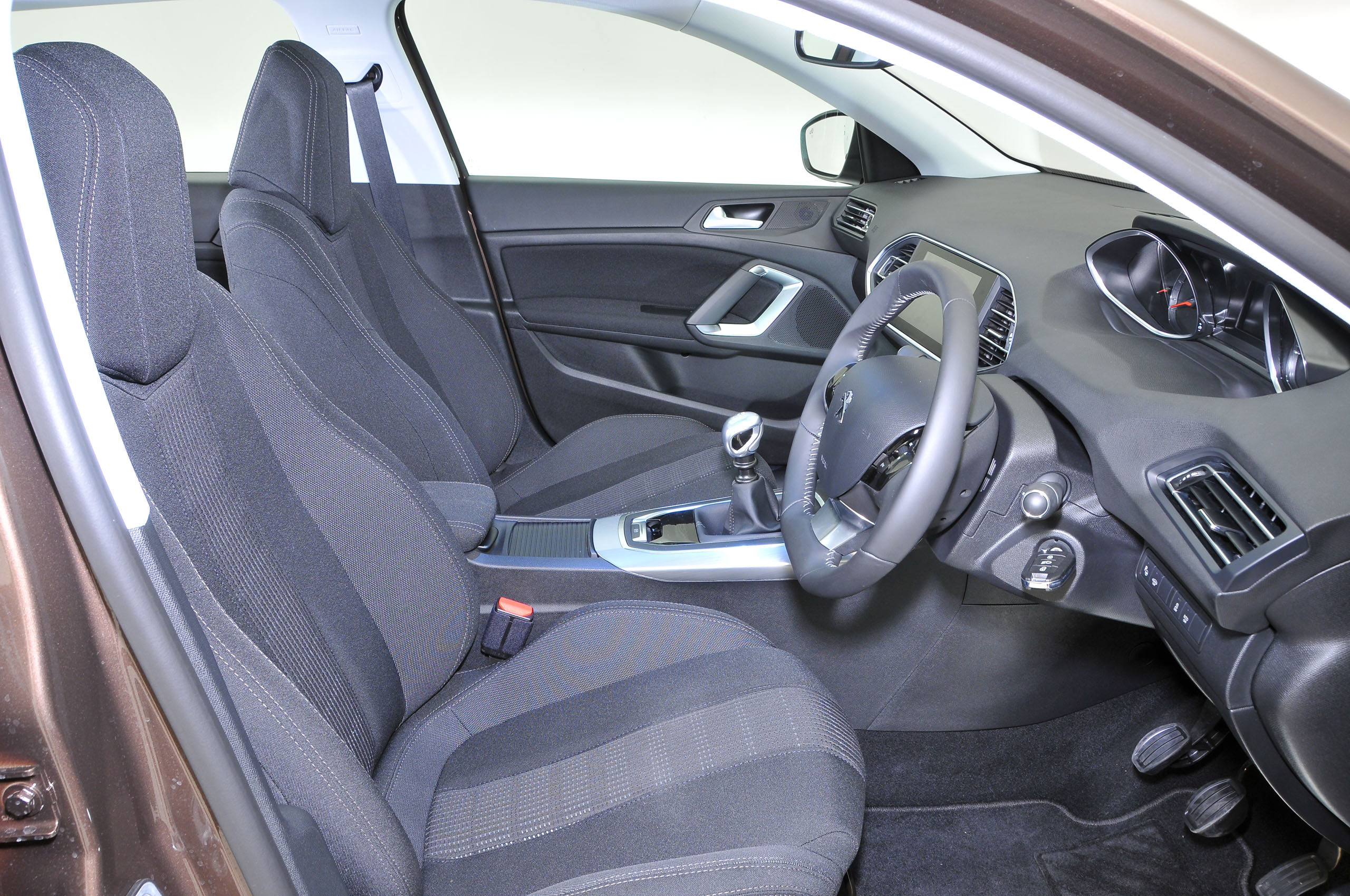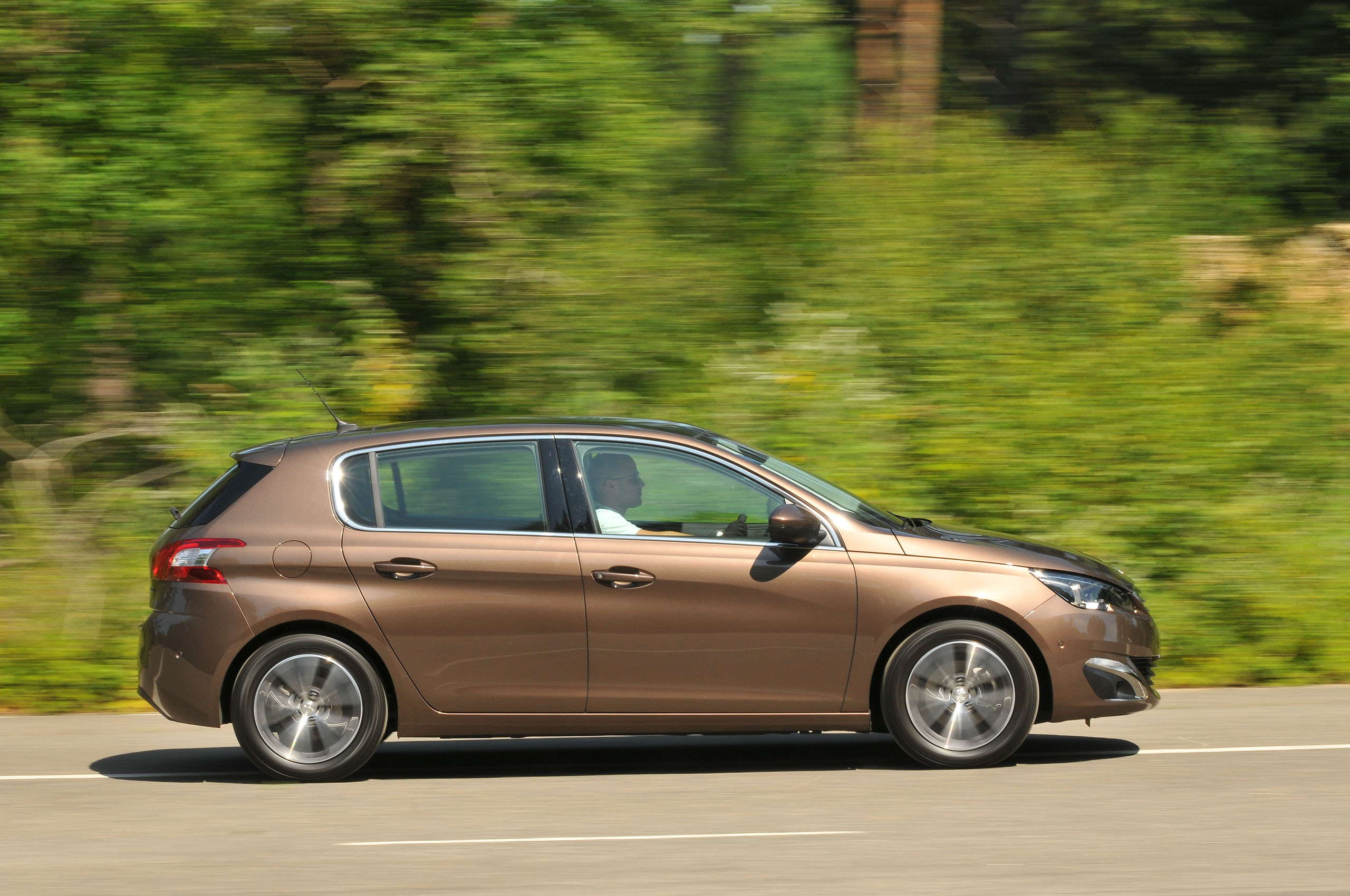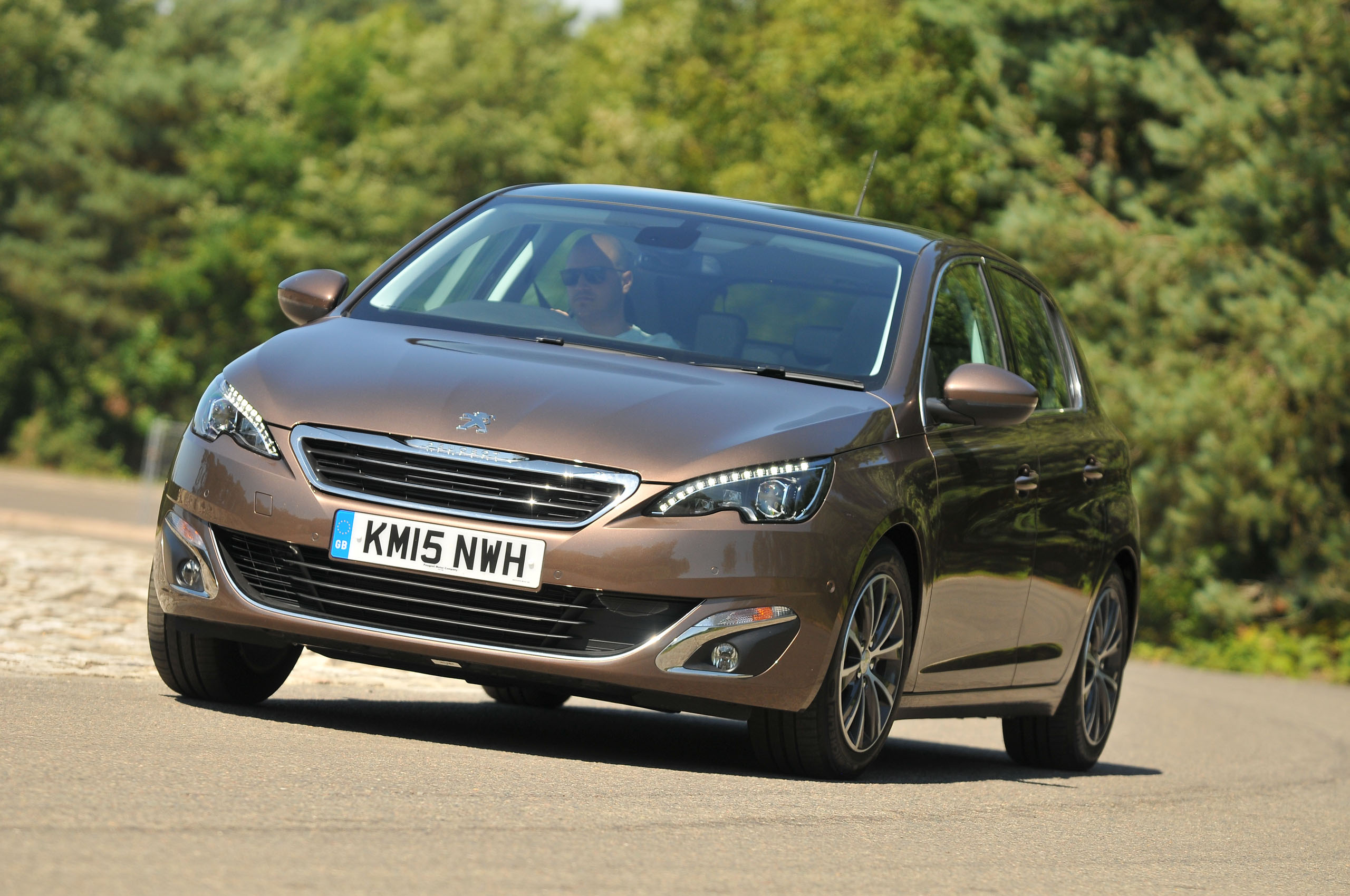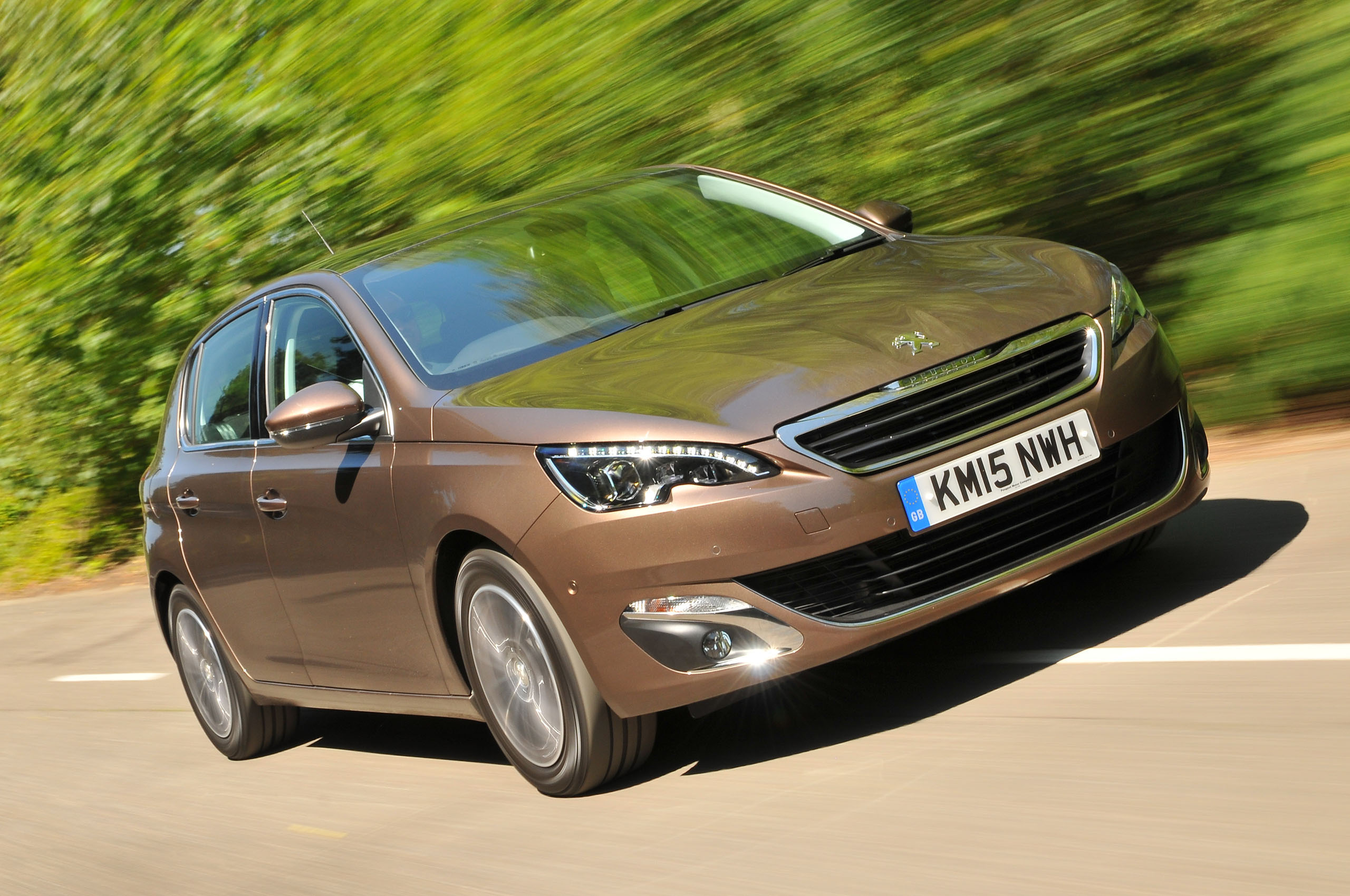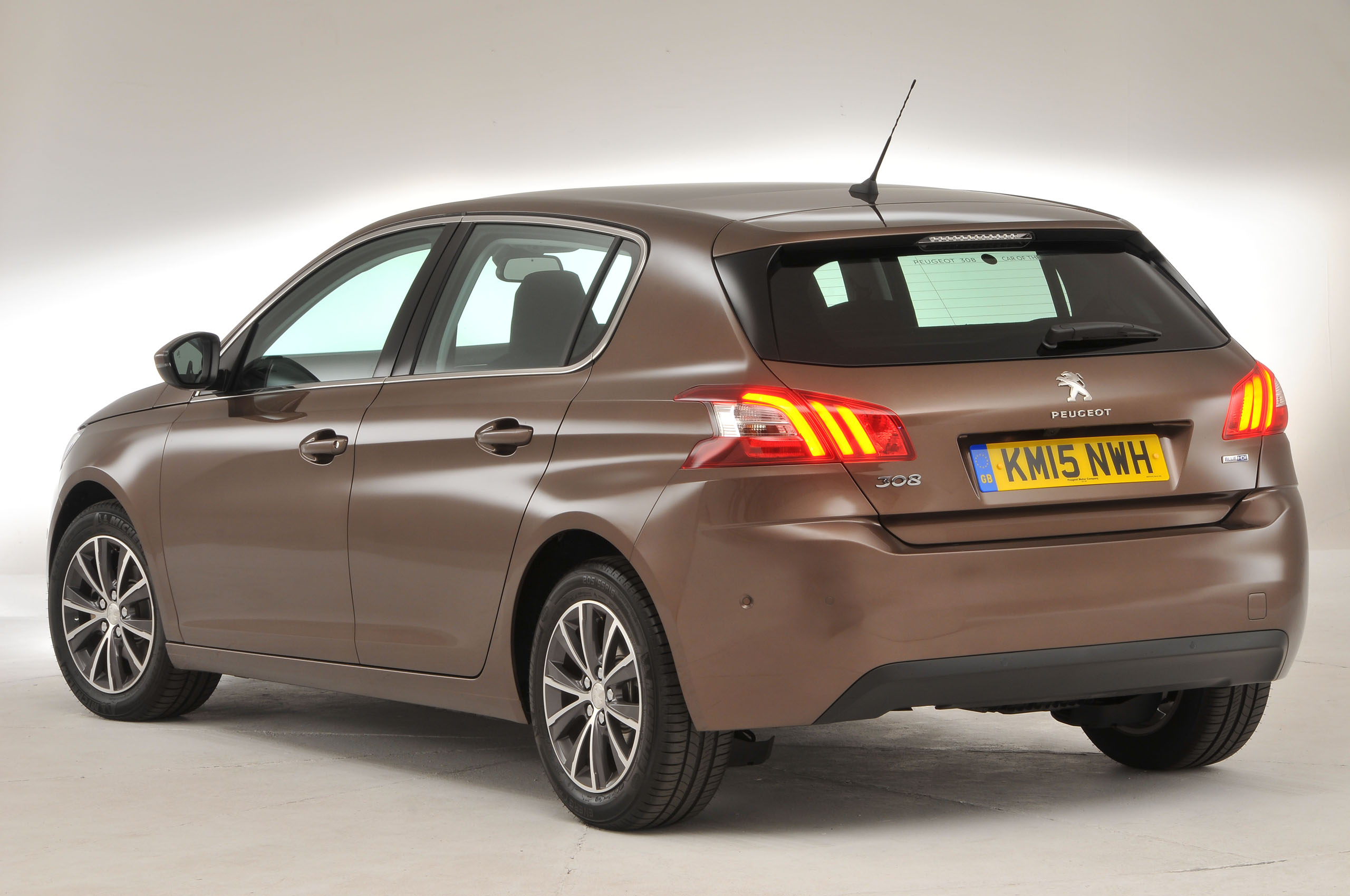Given that the 308 shares its architecture with the Citroën C4 Picasso, there are similarities in the cabin between the two models.
It’ll become a regular PSA theme: both cars have ditched cabin switches and clutter to gain a cleaner, classier look inside. And just as we liked the way that worked in the C4, so, too, do we appreciate it in the 308.
Nowhere is this more apparent than on the centre stack panel, where you’d usually find a plethora of heating and radio buttons. Instead, beneath the large central touchscreen that provides all the ancillary controls, you’re presented with a piece of plastic that offers no more distraction than a classy radio volume knob and a strip of chrome.
Perceived material quality is, by and large, a strong feature of the 308’s interior. Plastics are pleasing to the eye, metallic highlights are used liberally and work well, and the resolution and design of the central monitor look to-the-minute modern.
We still don’t rate the adoption of a small-diameter steering wheel as a total success, though. The idea of it is sound enough and the wheel itself turns pleasingly in your hands, but the instrument binnacle is obscured for too many drivers.
Taking a pair of conventional dials, placing them a touch further from each other and raising them a couple of inches isn’t a sufficiently acceptable solution to the problems created by the small wheel.
That aside, accommodation and ergonomics are mostly good in the front, but rear accommodation is less impressive. Young children will be able to get comfortable, but there’s more legroom in key competitors such as the Volkswagen Golf and Ford Focus.
On the equipment front there are five core 308 trims and one bespoke level for the 308 GTi. The entry-level bestows steel wheels, LED day-running-lights, air conditioning, cruise control, DAB radio, and Bluetooth and USB connectivity as standard, while going up to Active adds 16in alloy wheels, rear parking sensors, dual-zone climate control, automatic lights and wipers, and Peugeot's 9.7in touchscreen infotainment system complete with sat nav.
Upgrading to the Allure trim adds parking sensors at the front, LED headlights, electrically folding mirrors and an electronic parking brake, while the GT Line models adds niceties such as scrolling indicators, 18in alloy wheels, LED front foglights, privacy glass and a reversing camera.
The range-topping GT-trimmed 308 comes with a sculpted bodykit, lowered suspension, keyless entry and go plus numerous autonomous safety technology. Those pining for more power can opt for the 268bhp 308 GTi, which also gets a beefy bodykit including sporty side skirts, front bumpers and rear diffuser, alongside 19in alloy wheels, lower and wider track, a Torsten limited slip differential and large twin exhaust system. Inside there is dual-zone climate control, numerous interior GTi decals, lumbar adjustment, and half-leather/half-Alcantara sports seats with massage function.
PSA’s big central screen works well in the 308. It takes a few minutes of familiarisation, but then you’re away. Less pleasing is that you have to delve into the menu to find the heater controls. It’s a faff not to find it on the dashboard, noble though the effort of cleaning up the cabin otherwise is.
That aside, everything is laid out for the most part logically and with fine, high-resolution graphics. From a communications perspective, all of our testers found their phone paired easily with the Bluetooth connection and that functionality was good.
A clear set-up for the navigation is offered. It's simple enough to set where you want to go, and lo, it takes you there. Happy days. Traffic info isn’t as clever as, say, BMW’s or Audi's, but not many systems are.
Peugeot's radio and music player controls are also well laid out. As well as the solo dashboard button, there’s an additional column stalk for the most commonly used audio controls. Music players connect well, which is just as well as Peugeot asks £80 in return for providing a CD player.


